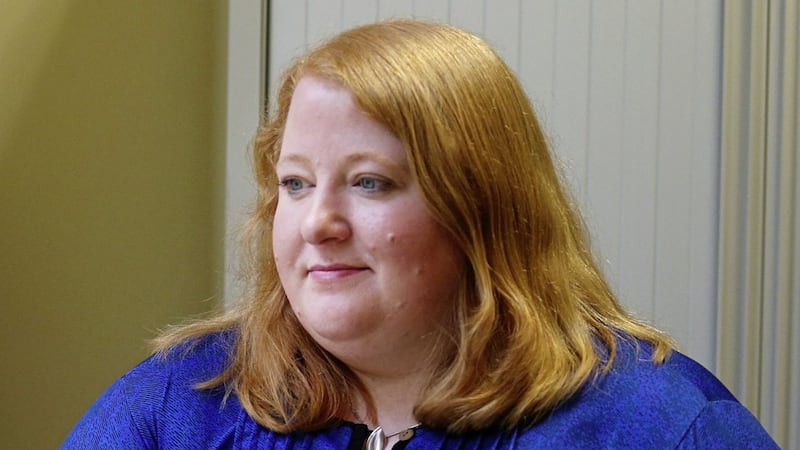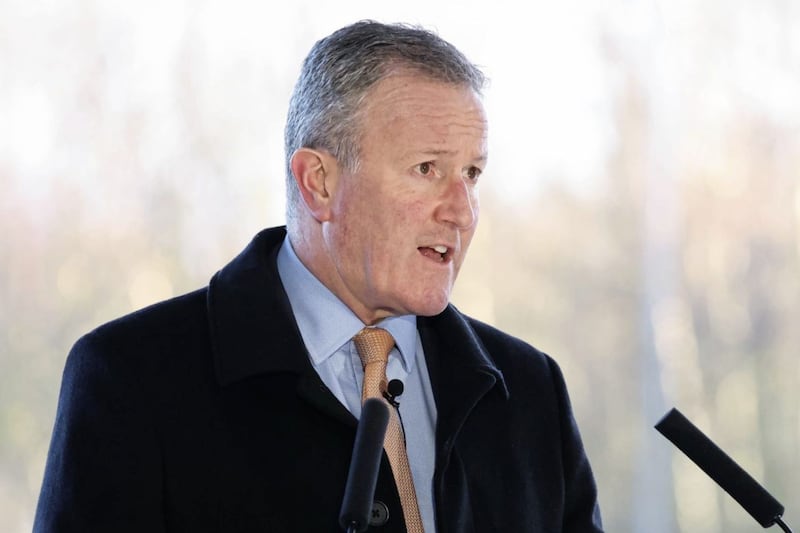NAOMI Long has warned of the challenges involved in appointing the board that will oversee the Troubles pension scheme and make decisions on who is eligible for payments.
The Stormont justice minister, who said the Northern Ireland Judicial Appointments Commission (NIJAC) would be putting in place arrangements to identify suitable members of the Victims’ Payments Board, has also indicated that the pension scheme could cost up to £800 million.
But the chief executive of the north's largest victims support group questioned the minister's projected figure.
Sandra Peake of WAVE Trauma Centre said Stormont officials had recently indicated that it would cost around a fifth of what Mrs Long had speculated.
The first pension payments are expected to be made in 12-18 months' time after Sinn Féin designated a Stormont department on Monday to oversee the scheme following last week's court ruling.
The party was found to have deliberately stymied the scheme in order to pressurise the British government into changing its eligibility criteria.
Sinn Féin Deputy First Minister Michelle O'Neill said the court's judgment left her with no option but to nominate a department, breaking months of deadlock that have stalled the scheme's rollout.
The breakthrough was last night welcomed by SDLP MLA Colin McGrath, the chair of Stormont’s Executive Office scrutiny committee.
He said there could be no further delay to the introduction of the scheme, which was legislated for at Westminster last year when the Stormont institutions were dormant.
The South Down representative said the British government needed to say what funds would be available to fund the scheme, while the first and deputy first ministers needed to outline how it would operate.
"We cannot reach the end of this phase of the process only to be met with further barriers," he said.
Mrs Long said her department was "not the best placed" to administer the scheme but that she felt morally obliged to offer to take it on.
"Given the complexity of the work that has to be done, we don't already have a system that does, for example, a monthly payment, so that's something we're going to have to develop," she told the BBC.
She said scheme's long-term financing still needed to be resolved but hoped it would be live within "months" rather than years.
However, the minister said it remained "unclear" where the funding of "anything up to £800 million" would come from.
Mrs Long also said she envisaged difficulties in appointing a board to oversee the scheme.
She said the Victims’ Payments Board would include legal members, medical members and lay members.
"Legal and medical appointees must meet minimum criteria to be eligible for appointment, while lay members must have an appropriate level of knowledge or experience," she said
The minister said NIJAC would be responsible for appointing the board and that it "will take time to run through those processes".
Ms Peake said as recently as July a senior Executive Office official had indicated a "best estimate was £165 million over the lifetime of the scheme".
"The majority of those who will qualify were injured during the 1970s and 1980s," she said.
"Given their age profile and those of their carers, usually spouses of similar age, there will be few who will still be receiving a pension in 30 years time."
Ms Peake also voiced concern about the length of time taken to process payments.
"The scheme was to be operational and ready to receive applications within three months from designation – we see no reason why that should still not be the case," she said.








